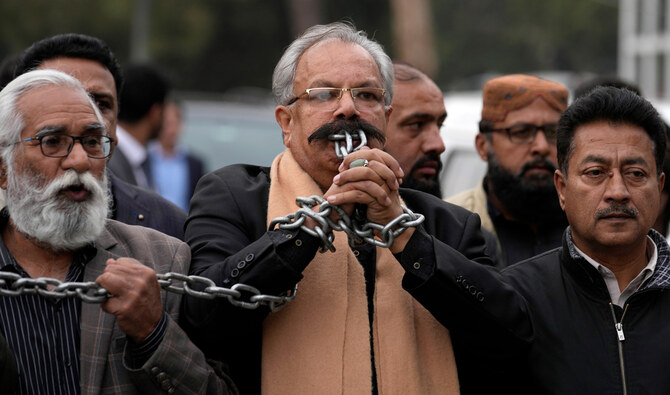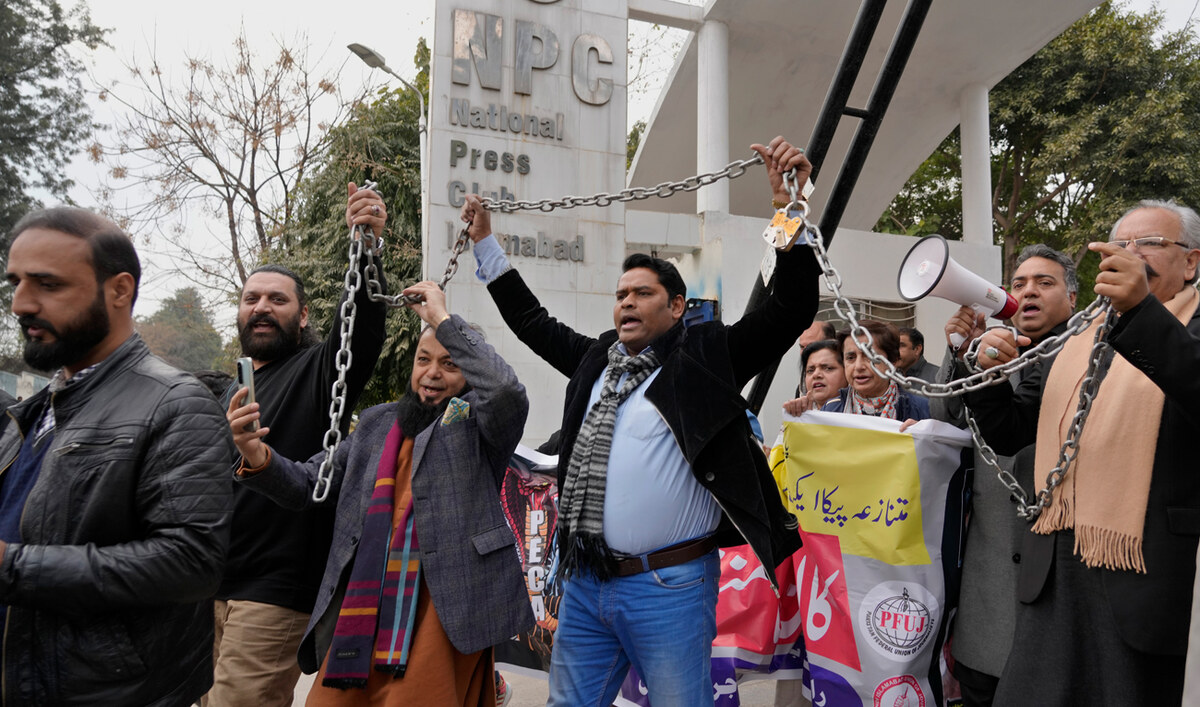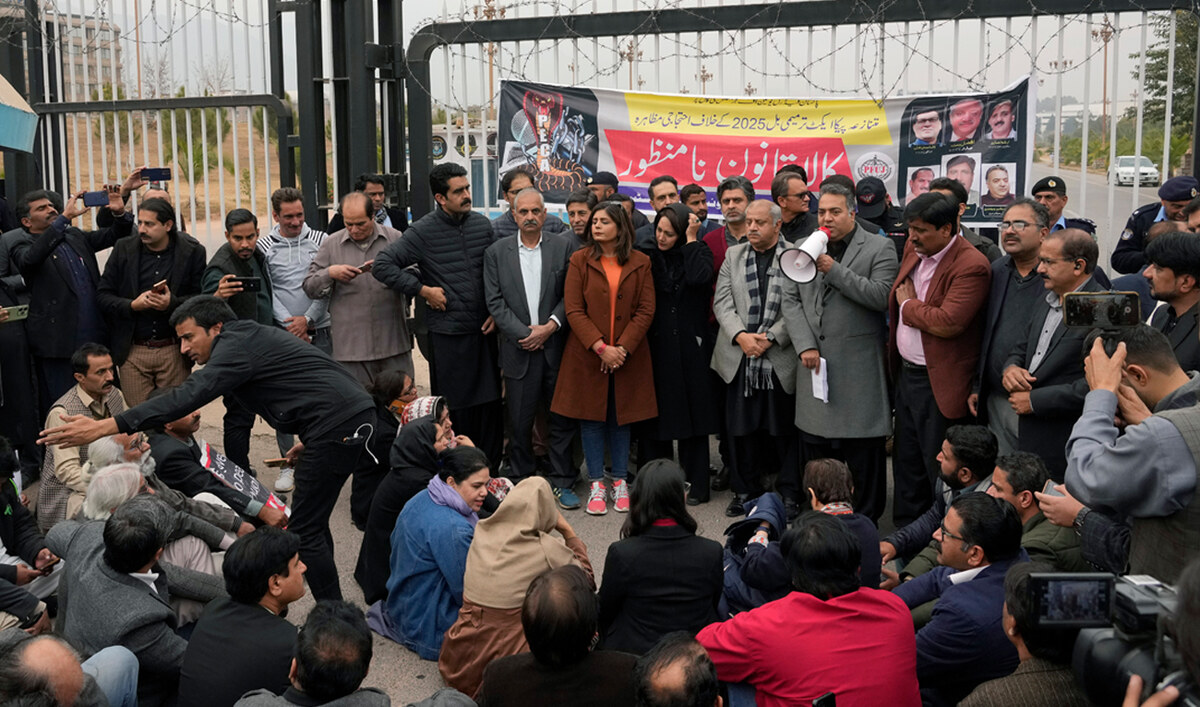RAWALPINDI: For many Pakistani women, eye disease ensures a life of deepening destitution and dependency, while in 85 percent of cases timely help could prevent it, experts and activists say.
Nearly 1 percent of Pakistan's 220 million population lives with blindness, last year's survey National Committee for Prevention of Blindness (NCPB) shows. The majority of the cases are of preventable blindness, in which detection of diseases such as diabetic retinopathy, glaucoma, or cataract.
Treatment, according to recent studies by NCPB's partner, Fred Hollows Foundation (FHF), could have saved the eyesight of over 85 percent of those who lost it, especially women. Having lost sight, they become a burden on their families, making eye disease a generational scourge among those who are often already vulnerable of the poor.
But as first symptoms occur, women rarely seek treatment due to dependency that tightens the more their vision is affected.
"They have to rely on husbands, fathers, children, a brother to move to any other place, whether it is a shopping area, or it is a clinic or a hospital," NCPB national coordinator Prof. Asad Aslam Khan told Arab News on Thursday.
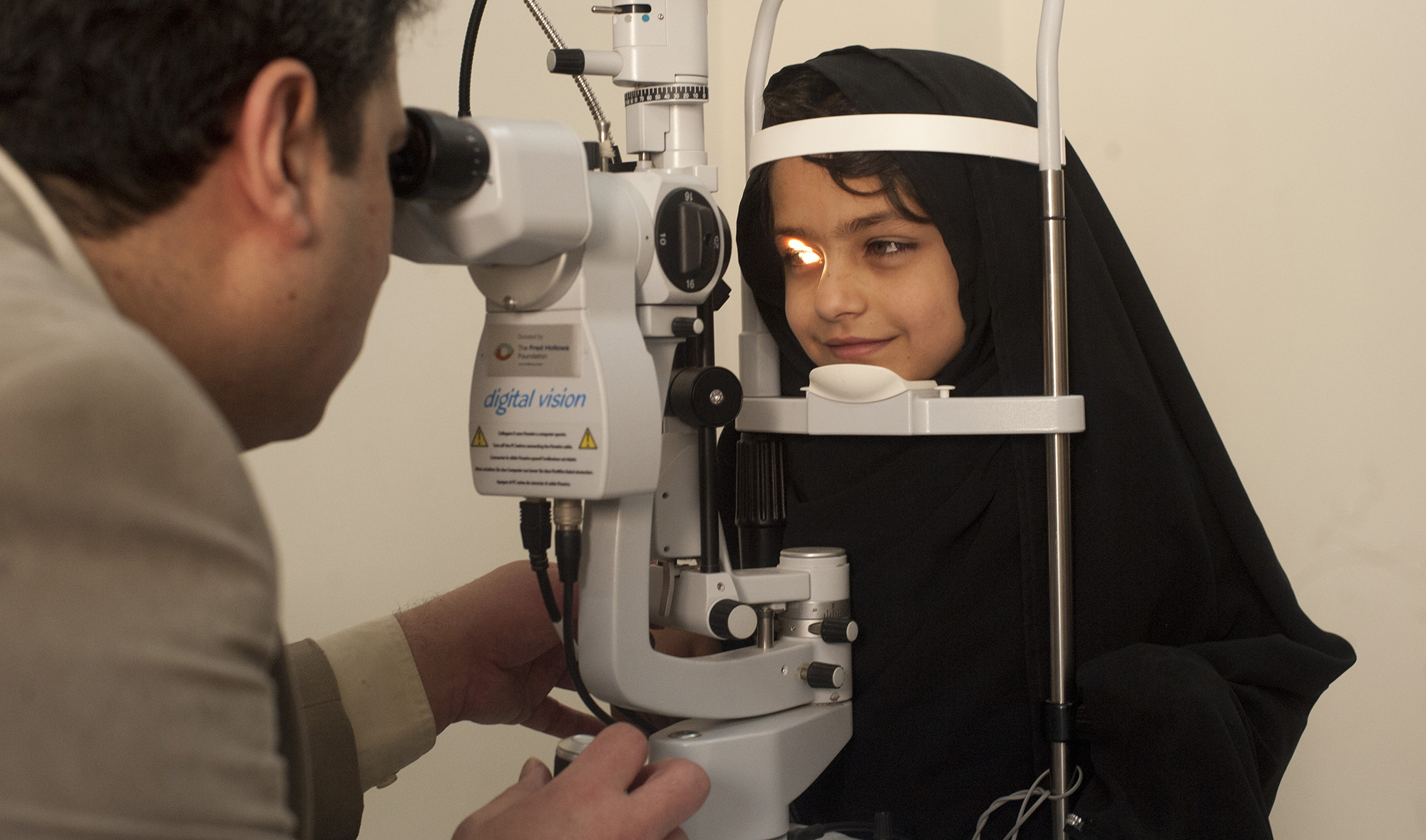
A young girl gets a free exam provided by the Fred Hollows Foundation in Punjab, Pakistan. (Photo courtesy: FHF)
"Most of the time they are deprived of getting to facilities at the proper time leading to a delay in detection and management of diseases. This unnecessary delay turns avoidable curable blindness into permanent blindness."
To address the situation, the NCPB has been establishing ophthalmologist facilities at district hospitals outside major cities and with the help of FHF providing surgery to those whose vision can be restored.
Much work, however, is a matter of changing the mindset to make women seek medical treatment.
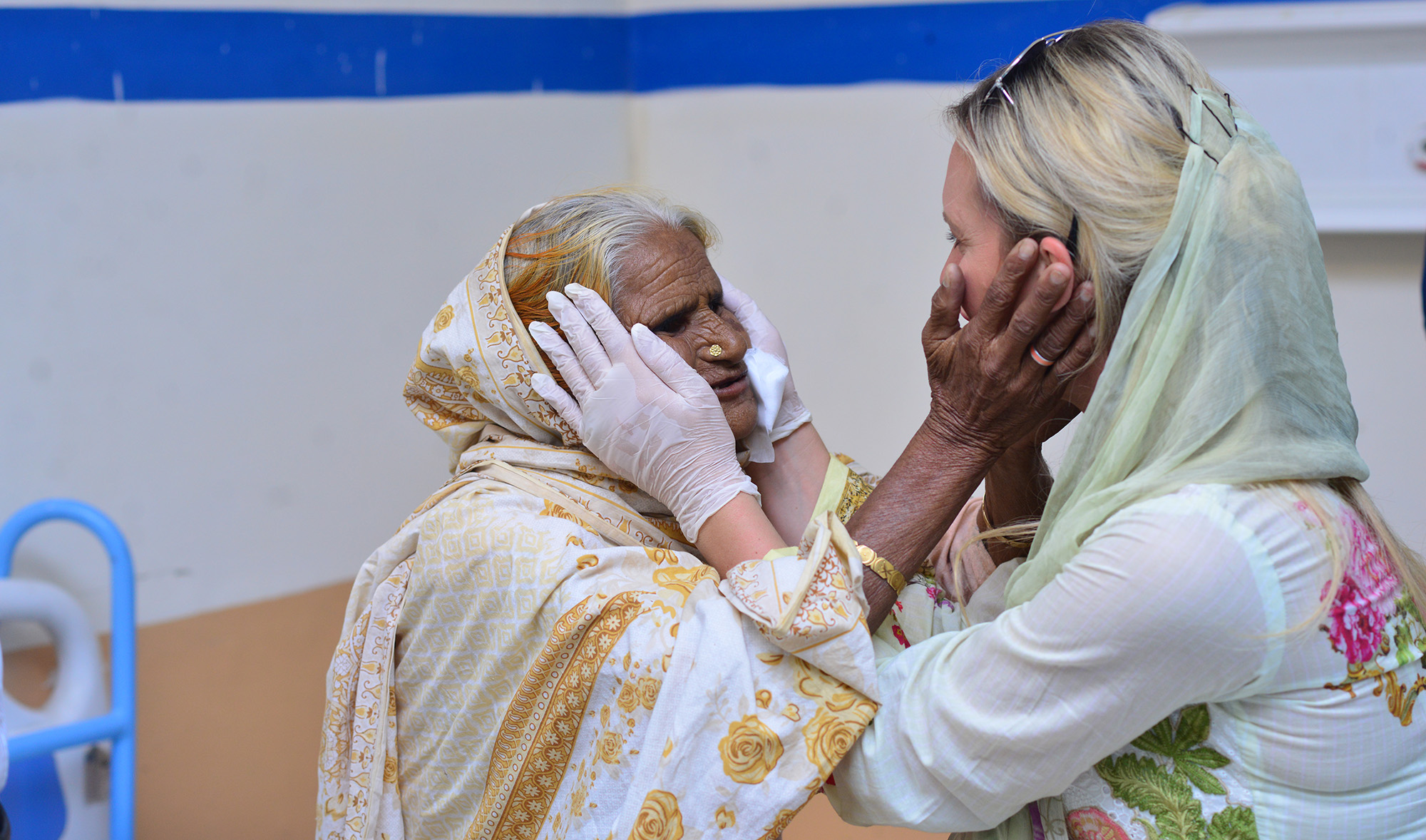
Fred Hollows Foundation ambassador Shaniera Akram embraces a woman whose sight was restored following corrective surgery at Chichawatni hospital in Punjab, Pakistan on October 30, 2019. (Photo courtesy: FHF)
Shaniera Akram, the Pakistan ambassador of the Australian NGO and wife of cricket superstar Wasim Akram, believes that fighting blindness is directly related to women's empowerment in Pakistan.
"We are trying to hit the gender gap, and close it to help bring women back into the workforce, to school, into their community, and back into their families," Akram told Arab News.
"By restoring a woman sight, who is also almost shunned from her family or community because of the fact that she's unhelpful to them, by giving that back, you’re empowering that woman to be able to live a full life."








